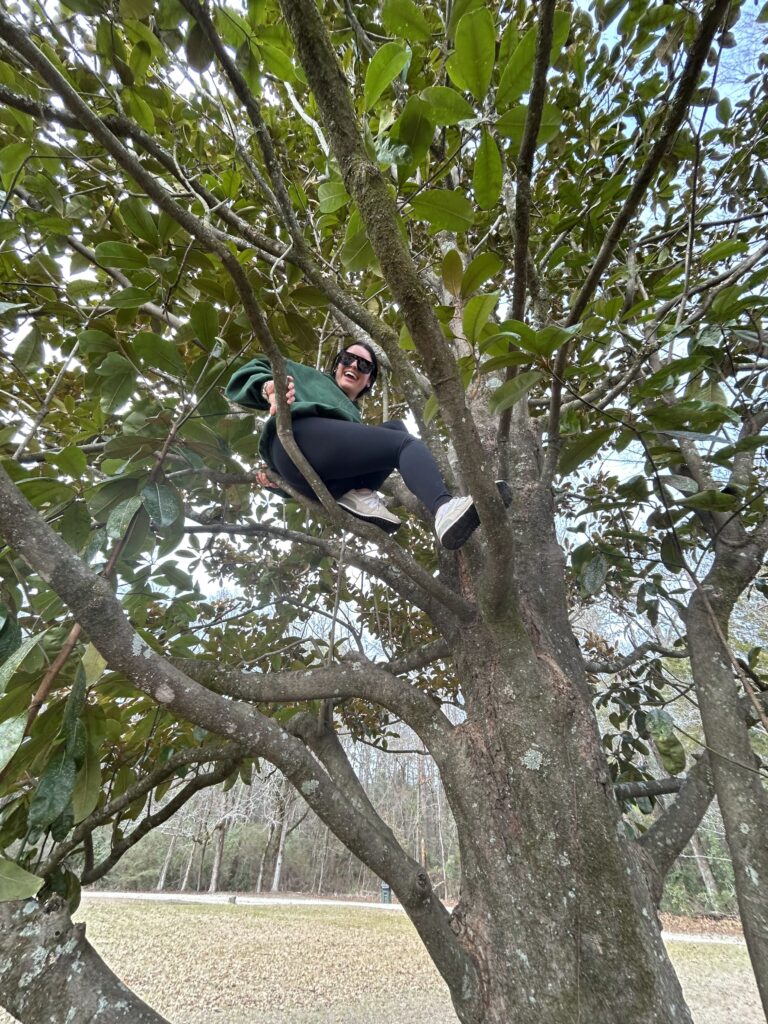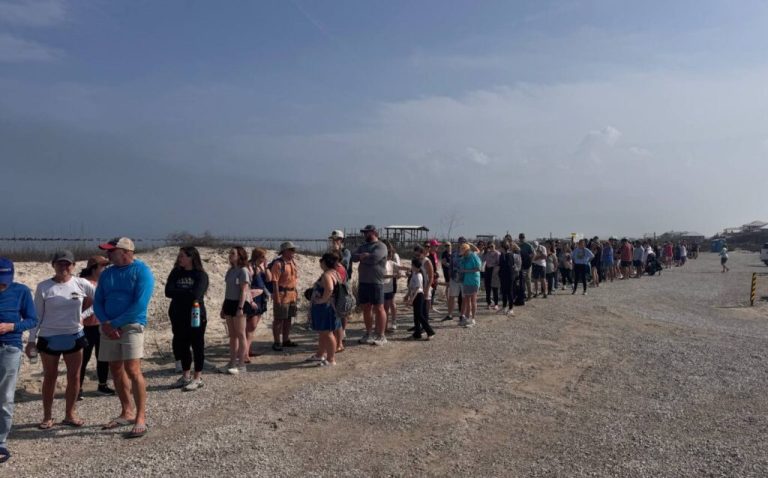Reviewed by: Sharron Swain
Discover one key to economic development + a healthier Alabama—trails
Reading time: 5 minutes
Sponsored

When former Secretary of State and Birmingham native Condoleezza Rice speaks, people listen, especially here in Alabama.
Back in October 2021, the Hoover Institution at Stanford University released a report she helped advise called Innovative Alabama.
Prepared for the Alabama Innovation Commission, the report had numerous economic development recommendations such as providing capital to support startups and the recruitment and retention of talented people coming into our state through higher education.
It was a pretty predictable economic development report. What made the report different was its last chapter titled…
“If You Build it, They Will Come: High-Skill Workers and Alabama’s Outdoor Recreation Infrastructure”
Alabama’s natural beauty—an asset

The Hoover Institution had identified one of Alabama’s greatest assets—our state’s natural beauty.
It’s our unique advantage and the creation of a dynamic trail system is our pathway to success.
In our first installment in a series about Alabama’s trails movement, we examined the many projects and initiatives popping up all over the state.
In this story, we talked to TC McLemore, Executive Director of Outdoor Recreation Programs at Innovate Alabama and Dr. David Hicks, the Health Officer for the Jefferson County Department of Health about why trails matter.
Why do trails matter? Innovation

Innovate Alabama, the statewide public-private partnership established in 2021 after the Hoover Institution report, is dedicated to carrying out the initiatives within the document.
TC McLemore, the former Executive Director at Red Mountain Park in Birmingham, knows a thing or two about creatively building trail infrastructure and partnerships.
In late 2022, it was McLemore who forged a partnership between Red Mountain Park and RideBHM to bring mountain biking to the masses. It is that kind of project that will help recruit and retain entrepreneurs and talent in the state.
“We’re approaching economic development and incubating innovation in the state in a holistic way.
If we don’t showcase Alabama as a place to grow roots as an innovator and an entrepreneur, to raise a family and to live your full life, then we’re going to have a harder time retaining talent, jobs and companies.”
TC McLemore, Executive Director of Outdoor Recreation Programs, Innovate Alabama

According to Innovate Alabama, outdoor recreation is the driving force for startups and tech talent interested in building in or relocating to a community.
“Those companies and founders know that if they’re going to recruit top talent, a big component they are looking at is our investment in outdoor recreation and trails—from mountain biking to backpacking.”
TC McLemore, Executive Director of Outdoor Recreation Programs, Innovate Alabama
Innovate Alabama has committed to deploy funds for trail infrastructure across the state. Here is what they have already accomplished in the past 18 months.
- Funded over $13 million in outdoor recreation projects, touching 23 counties.
- Invested $1.1 million in Coldwater Mountain to upgrade the mountain bike trails. The International Mountain Bicycling Association (IMBA) hopes to give Coldwater Mountain a Silver designation. Presently, only 16 mountain bike locations have this prestigious honor worldwide.
- Invested in the Pinhoti Trail infrastructure that includes new sections of trail, shelters and restrooms
Why trails matter—our health

In addition to benefiting us economically, trails matter, whether they are in a neighborhood, park, forest or on a creek, they make us healthier.
“Trails play a significant role in public health by promoting physical activity and providing safe spaces for walking, jogging and biking. They help reduce the occurrence of crime and chronic diseases like obesity, diabetes and heart disease.
It also improves your mental health and your mood, and ultimately increases your chances of living longer.”
Dr. David Hicks, Health Officer, Jefferson County Department of Health

Trails are an important alternative to automobiles to connect people to grocery stores, employment opportunities and to each other’s communities. Connecting and providing access to all these resources will improve health outcomes. That’s why trails matter.
A big supporter of the Red Rock Trail System in Jefferson County, Hicks believes trail initiatives by groups such as the Freshwater Land Trust and Innovate Alabama will make a positive difference in people’s lives.
“I am hopeful that we can help move the needle and become a healthier state—and become the envy of the rest of the country. I know there’s a lot of work to do in that regard. We just have to figure out how to leverage the natural beauty we have and take advantage of it.”
Dr. David Hicks, Health Officer, Jefferson County Department of Health
Next Up: What you can do

In our first story we saw how building trails is the ultimate community project. In our next installment, we will provide a list of things you can do to make trails in your community and throughout the state of Alabama a reality.
Sponsored by:




